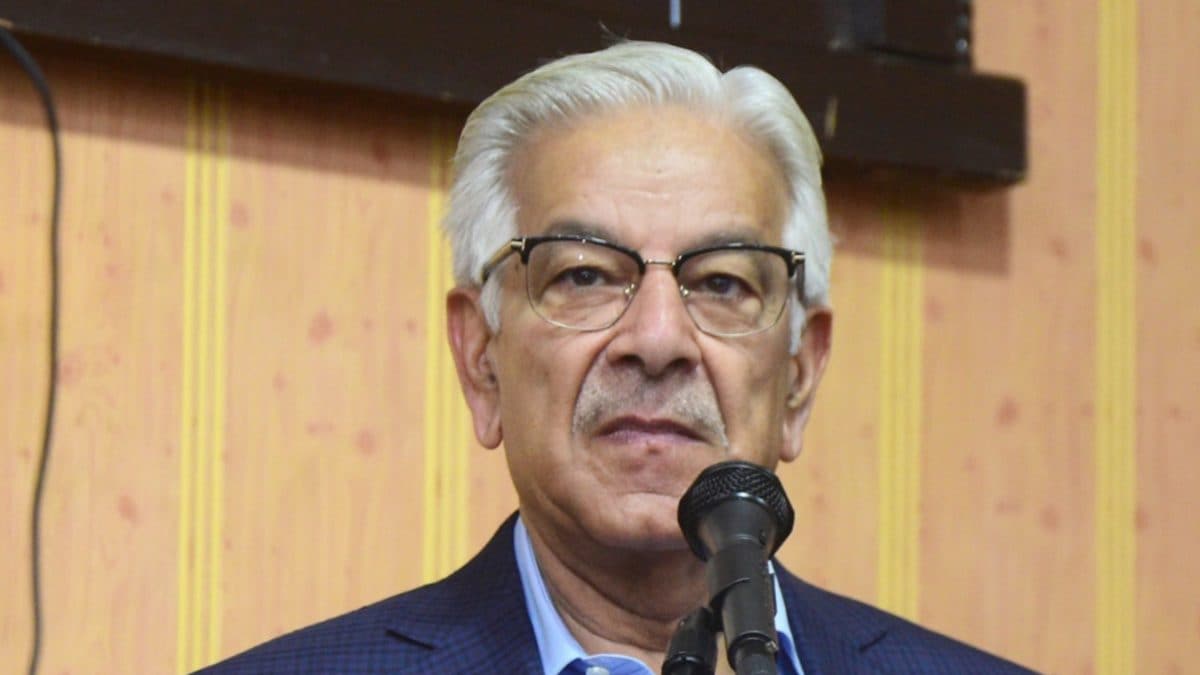Pakistan’s political landscape continues to be dominated by the ongoing legal battles and controversies surrounding former Prime Minister Imran Khan. The potential for a military trial against Khan, fueled by accusations of anti-state activities and his alleged close ties to former Inter-Services Intelligence (ISI) chief Faiz Hameed, adds a significant layer of complexity and raises questions about the separation of powers and the role of the military in Pakistani politics. This situation is fraught with political tensions and has the potential to further destabilize the country.
The Imminent Military Trial: A Catalyst for Political Turmoil
The possibility of Imran Khan facing a military trial is a significant development that carries major implications for Pakistan’s political and social stability. While the Defence Minister Khawaja Asif emphasizes transparency and public awareness as justifications for an open trial, this scenario raises concerns about the erosion of civilian control over the military and potential abuses of power.
The Threat to Democratic Principles
The trial of a former Prime Minister by a military court raises fundamental questions about the rule of law and the separation of powers. Historically, military courts in Pakistan have been used to try individuals accused of undermining national security, with little transparency or due process. The involvement of the military in civilian legal matters undermines the independence of the judiciary and could further erode public trust in the judicial system.
Potential for Increased Political Unrest
If Khan is indeed tried in a military court, the decision is likely to be met with widespread public protests and calls for Khan’s release. The PTI, despite recent legal victories and a larger parliamentary presence, continues to portray Khan as a victim of political persecution. A military trial would undoubtedly further strengthen this narrative and exacerbate existing political polarization, potentially leading to increased unrest and violence.
The Controversial Relationship: Khan and Hameed
The allegations of a close relationship between Imran Khan and Faiz Hameed, the former ISI chief, have been a source of considerable controversy in Pakistan. Accusations of shared goals and their continued interaction after May 9, 2023, further fuel the perception of undue military influence in Pakistani politics.
The ISI’s Shadow over Politics
The Inter-Services Intelligence (ISI) has a long history of influencing politics in Pakistan. Accusations of the ISI’s involvement in supporting specific political parties and influencing election outcomes are commonplace. The alleged relationship between Khan and Hameed further strengthens the perception of a deep and troubling link between the military establishment and civilian politics. This undermines democratic principles and raises concerns about the erosion of civilian control over the military.
The Power of the Military in Pakistan
Pakistan’s military establishment has a powerful influence over its political system. The military’s role in national security and foreign policy is significant, and it has a history of direct intervention in civilian politics. This has led to a long-standing debate about the limits of the military’s influence in a supposedly democratic system. The allegations surrounding Khan and Hameed reinforce these concerns and highlight the ongoing challenges faced by Pakistan in achieving a truly democratic balance.
The PTI: Navigating a Turbulent Political Landscape
The Pakistan Tehreek-e-Insaf (PTI), despite facing legal challenges and internal turmoil, has emerged from the political maelstrom as the largest party in the National Assembly. The party continues to champion Khan as a victim of a political witch hunt, while it also faces accusations of engaging in anti-state activities and perpetuating misinformation.
The Power of Propaganda and Disinformation
The PTI has effectively leveraged social media platforms to disseminate its message and build a strong online presence. The party has used this channel to amplify its narrative, often utilizing inflammatory rhetoric and conspiracy theories to garner support and paint itself as a victim of an unfair system. The potential for this strategy to further destabilize Pakistan and inflame public sentiment cannot be discounted.
The Challenges of Political Reform
Despite its successes, the PTI faces a long road ahead in reforming Pakistan’s political landscape. The party’s ability to overcome internal divisions, navigate complex legal challenges, and engage constructively with other political actors will determine its ultimate impact on the nation’s future.
Takeaway Points
- The possibility of Imran Khan facing a military trial in Pakistan is a highly controversial development with significant implications for the rule of law and the separation of powers.
- The trial could further exacerbate existing political tensions, leading to increased unrest and instability in the country.
- The allegations surrounding Khan’s relationship with former ISI chief Faiz Hameed raise concerns about the military’s influence in politics and erode public trust in the judiciary.
- The PTI, while currently the largest party in the National Assembly, faces challenges in overcoming internal divisions and navigating a highly polarized political landscape.
- The ongoing turmoil in Pakistani politics highlights the fragility of its democratic system and the urgent need for reforms that address the issue of military influence in civilian affairs.









